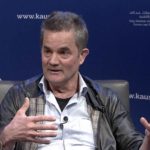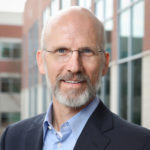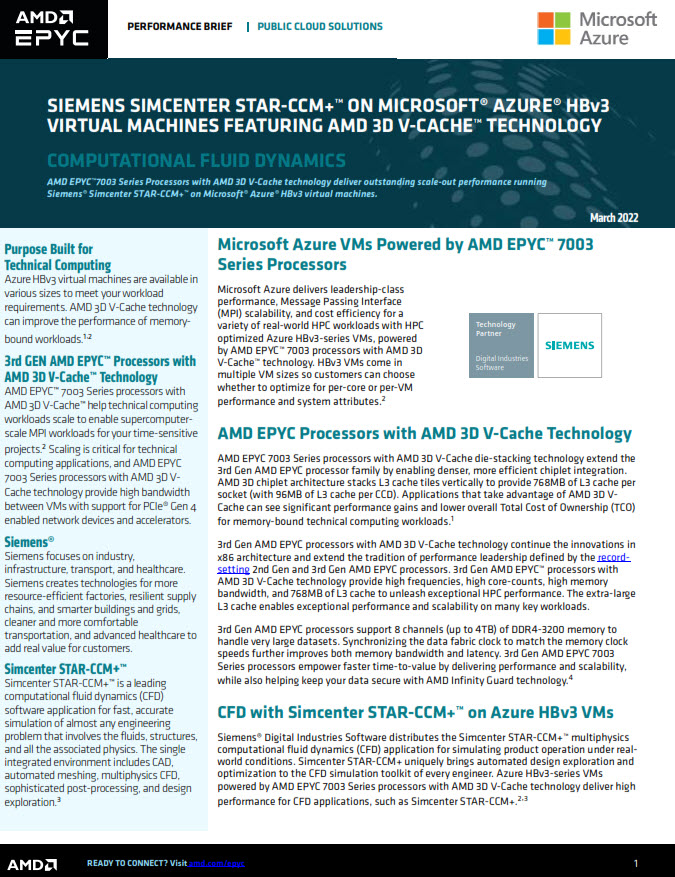In this video from SC18 in Dallas, Trish Damkroger describes how Intel is pushing the limits of HPC and Machine Learning with a full suite of Hardware, Software, and Cloud technologies. ”
Today’s high performance computers are unleashing discovery and insights at an unprecedented pace. The intersection of artificial intelligence and HPC has the potential to transform industries from life sciences to manufacturing, while solving some of the toughest challenges in our world. At SC18, HPC users got to experience how Intel’s holistic portfolio of products is transforming HPC from traditional modeling and simulation to visualization, analytics, and artificial intelligence.”
Search Results for: LEADERSHIP
Intel Continues HPC Leadership at SC18
Leadership Computing and NSF’s Computational Ecosystem
Irene Qualters gave this talk at the HPC User Forum in Detroit. “For over three decades, NSF has been a leader in providing the computing resources our nation’s researchers need to accelerate innovation,” said NSF Director France Córdova. “Keeping the U.S. at the forefront of advanced computing capabilities and providing researchers across the country access to those resources are key elements in maintaining our status as a global leader in research and education. This award is an investment in the entire U.S. research ecosystem that will enable leap-ahead discoveries.”
Leadership Computing for Europe and the Path to Exascale Computing
Thomas Schulthess from CSCS gave this talk at the GPU Technology Conference. “With over 5000 GPU-accelerated nodes, Piz Daint has been Europes leading supercomputing systems since 2013, and is currently one of the most performant and energy efficient supercomputers on the planet. It has been designed to optimize throughput of multiple applications, covering all aspects of the workflow, including data analysis and visualisation. We will discuss ongoing efforts to further integrate these extreme-scale compute and data services with infrastructure services of the cloud. As Tier-0 systems of PRACE, Piz Daint is accessible to all scientists in Europe and worldwide. It provides a baseline for future development of exascale computing.”
Video: Powering the Road to National HPC Leadership
Jack Wells from ORNL gave this talk at the 2018 OpenPOWER Summit. “The Summit supercomputer coming to Oak Ridge is the next leap in leadership-class computing systems for open science. Summit will have a hybrid architecture, and each node will contain multiple IBM POWER9 CPUs and NVIDIA Volta GPUs all connected together with NVIDIA’s high-speed NVLink. Each node will have over half a terabyte of coherent memory (high bandwidth memory + DDR4) addressable by all CPUs and GPUs plus 800GB of non-volatile RAM that can be used as a burst buffer or as extended memory.”
Radio Free HPC looks at New Leadership at HPE
In this podcast, the Radio Free HPC team looks at HPE’s new CEO, Antonio Neri, a longtime HPE executive who previously served as President of the company. As the number 1 server vendor in the HPC space, this change will be one to watch as we transition to the exascale era in the next five years or so. “This transistion comes at an interesting time for HPE, as one of their main competitors, Dell Technologies, is reportedly looking at an IPO or reverse acquisition by VMware.”
Video: House Hearing on American Leadership in Quantum Technology
In this video. the House Subcommittee on Research & Technology and Subcommittee on Energy holds a hearing on American Leadership in Quantum Technology. “Quantum technology can completely transform many areas of science and a wide array of technologies, including sensors, lasers, materials science, GPS, and much more. Quantum computers have the potential to solve complex problems that are beyond the scope of today’s most powerful supercomputers. Quantum-enabled data analytics can revolutionize the development of new medicines and materials and assure security for sensitive information.”
Radio Free HPC Looks at Europe’s Push for Leadership in Global HPC
In this podcast, the Radio Free HPC team looks at some the top High Performance Computing stories from this week. First up, we look at Europe’s effort to lead HPC in the next decade. After that, we look at why small companies like Scalable Informatics have such a hard time surviving in the HPC marketplace.
Panel Discussion on How Europe Can Attain World Leadership in HPC
“HPC is moving towards its next frontier – more than 100 times faster than the fastest machines currently available in Europe,” said Andrus Ansip, European Commission Vice-President for the Digital Single Market. “But not all EU countries have the capacity to build and maintain such infrastructure, or to develop such technologies on their own. If we stay dependent on others for this critical resource, then we risk getting technologically ‘locked’, delayed or deprived of strategic know-how. Europe needs integrated world-class capability in supercomputing to be ahead in the global race.”
DOE to Showcase Leadership in HPC at SC16
Researchers and staff from the U.S. Department of Energy’s national laboratories will showcase some of DOE’s best computing and networking innovations and techniques at SC16 in Salt Lake City. “Computational scientists working for various DOE laboratories have been in involved in the conference since its 1988 beginnings, and this year’s event is no different. Experts from 14 national laboratories will be sharing a booth featuring speakers, presentations, demonstrations, discussions and simulations.”
PRACE Elects New Leadership
The PRACE Council in Europe has elected Prof Dr Ir Anwar Osseyran of SURF/SURFsara as Chair and Dr Sergi Girona of BSC was elected Vice-Chair. PRACE – the Partnership for Advanced Computing in Europe – counts 25 European Members States and Associated Countries as its members. PRACE aims to facilitate excellent research and science in academia […]












